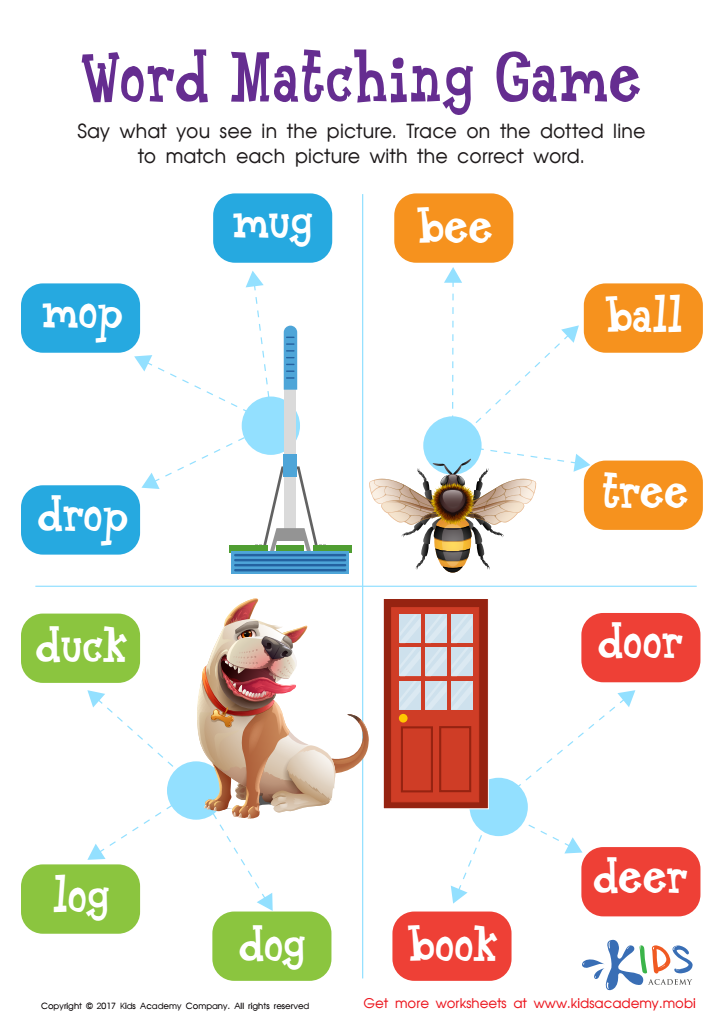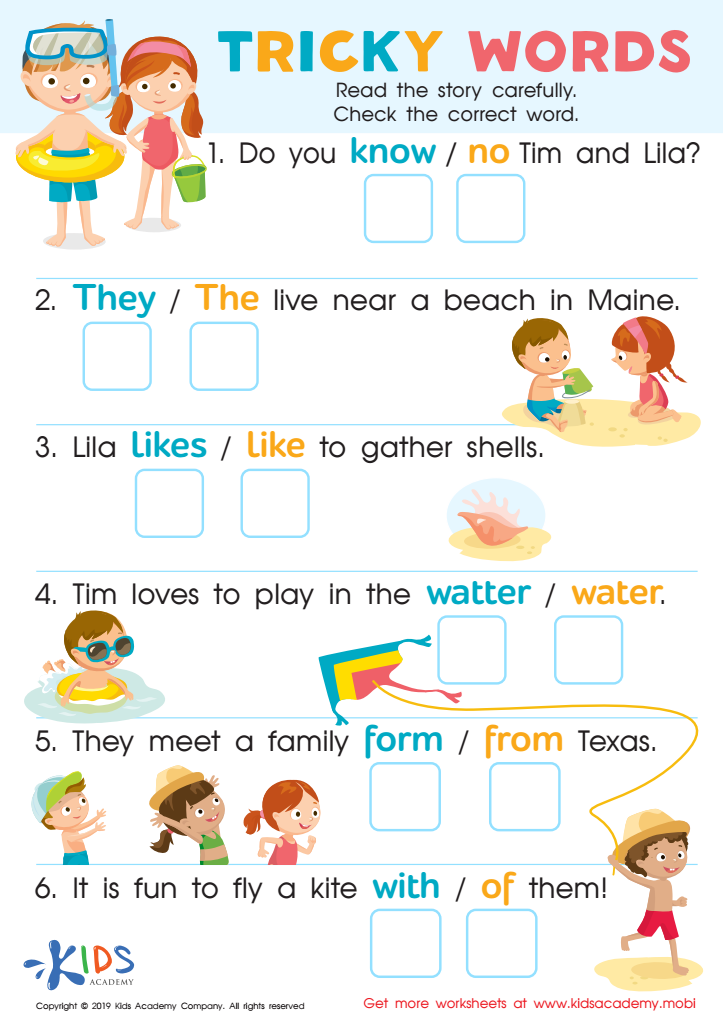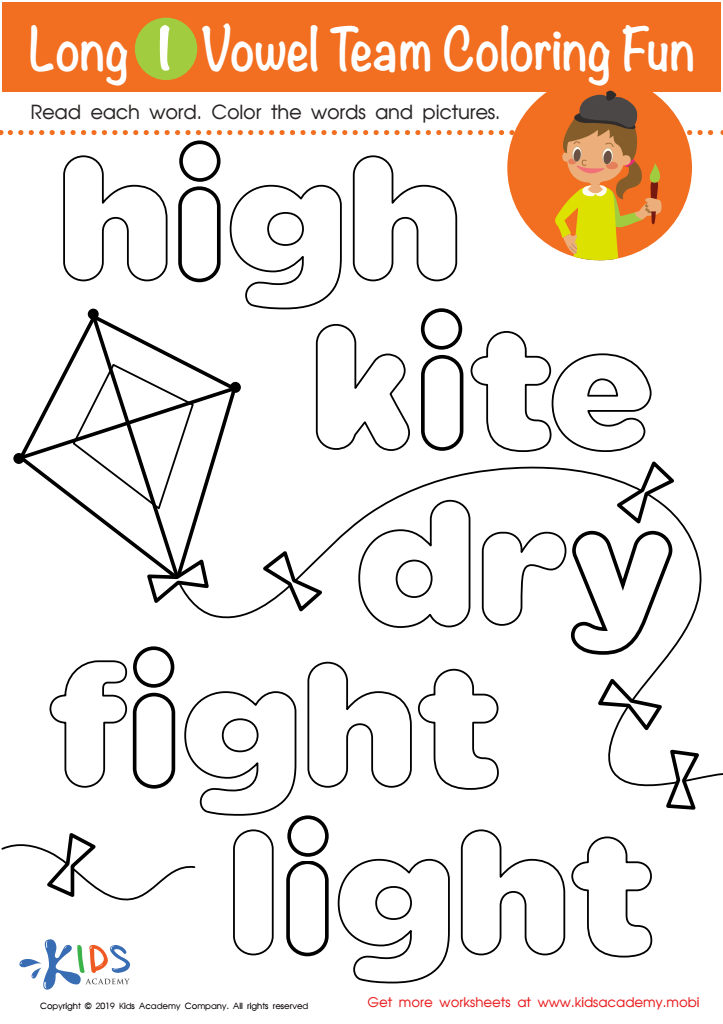Spelling practice Normal Elementary Phonics Worksheets for Ages 4-6
3 filtered results
-
From - To
Enhance your child’s spelling abilities with Kids Academy’s Normal Elementary Phonics Worksheets, designed for ages 4-6. These fun and interactive worksheets help young learners master the alphabet and improve their spelling skills. Our carefully crafted activities focus on essential phonics elements, promoting strong foundational reading abilities. Each worksheet engages children with vibrant images and enjoyable exercises, making spelling practice both educational and enjoyable. Perfect for both classroom and home use, these worksheets cater to various learning styles and skill levels. Empower your young speller to excel with Kids Academy’s expert-developed resources—setting the stage for lifelong reading success.


Word Matching Game Worksheet


Tricky Words Worksheet


Long I Vowel Team Coloring Worksheet
Ensuring young children meaningfully engage in spelling and phonics practice during early elementary years, particularly ages 4-6, is crucial for foundational literacy development. At this tender age, children's brains are highly receptive to new information, making it an ideal period to introduce phonics— the relationship between sounds and their corresponding letters. Phonics instruction helps children decode words, enhancing reading fluency and comprehension, and builds a strong vocabulary base.
Spelling practice further reinforces this understanding by encouraging children to apply phonics rules actively. Regular practice helps children recognize common patterns and irregularities in words, making them more proficient readers and writers. Over time, this bolsters their confidence and fosters a lifelong love for reading.
Moreover, engaging in spelling and phonics exercises aids in developing essential cognitive skills like memory, attention to detail, and logical thinking. These exercises often involve multisensory activities (visual, auditory, and kinesthetic), catering to diverse learning styles and enhancing overall cognitive development.
Ultimately, the goal of prioritizing phonics and spelling practice for young learners isn't just to improve their current academic performance but to lay a solid groundwork for all future educational endeavors. This early investment invariably leads to better academic outcomes and personal growth, providing children with the tools they need to navigate an increasingly literate world.
 Assign to My Students
Assign to My Students









